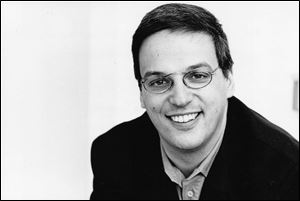
Sanderling is ready for rich Mahler 'No. 9'
1/12/2006
Stefan Sanderling
When Stefan Sanderling signed on in 2002 as Toledo Symphony's principal conductor, he began a building process. The musical menu was loaded with short works by Mozart and Haydn, the pillars of the early symphonic tradition. The idea was to use this straightforward literature to train and discipline the orchestra's musical voice.
That was then.
This weekend Sanderling leads the orchestra in a pair of performances of Mahler's Symphony No. 9, which Sanderling considers the greatest and most emotionally rich symphony ever written.
"Listening in is like being on the couch of Dr. Freud," Sanderling said.
"Mahler explores his soul and that of his compatriots to an extent that no one else had ever done. He was writing at the end of his life, when he no longer cared about conventions. Instead, he followed the complexity of his own emotions, crying out to the world what he felt."
A dissatisfied Jewish intellectual who had given up his religious tradition as a young man, the intensely sensitive Mahler was a wandering spirit within the convention-bound and often anti-Semitic world of turn-of-the-century Austria. He longed for the transformative experience of faith, but had to yield to finding what salvation he could through his music.
Written between 1908 and 1910 as the composer, ill with heart disease, was approaching his 50th and final birthday, the symphony is a farewell not only to his own life, but to his beloved Age of Romanticism.
"It was with this piece that the Classic/Romantic music tradition came to an end. It's said that Schoenberg was the emancipator of dissonance, but it starts with Mahler 9. After that, there was no turning back. Tonality just dissipated," Sanderling said.
With its nearly 90 minutes of ever-developing musical ideas, the symphony towered over everything written previously. So great was its shadow in Eastern Europe that two generations passed before there was another significant attempt at composing a symphony, he said.
Tomorrow's performance will be a first for both Sanderling and Toledo Symphony.
"I waited until 41 to conduct this music. There are some things you want to wait for. Mahler died at 50. I am getting to the age where I can understand some of the things he was feeling. Sometimes it gives me a little shiver," Sanderling said.
Stefan Sanderling conducts the Toledo Symphony in music of Haydn and Mahler at 8 p.m. tomorrow and Saturday in the Toledo Museum of Art Peristyle. Tickets range from $19 to $46. Information: 419-246-8000.
-Steven Cornelius